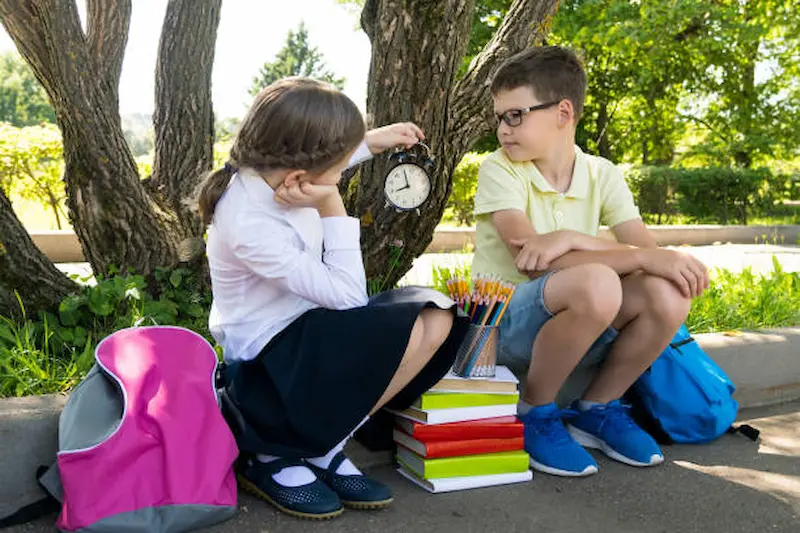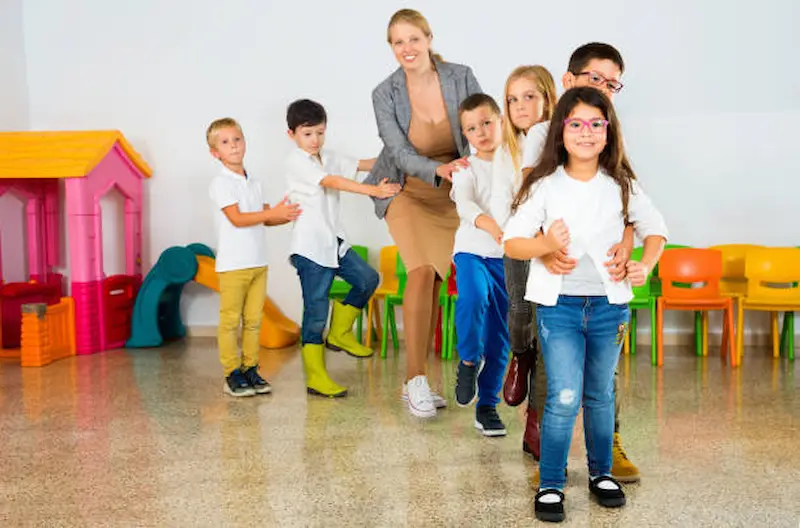Discipline involves guiding behavior through clear expectations, consistent consequences, and positive reinforcement, emphasizing teaching over punishment. Discipline is crucial for instilling values, promoting self-control, and fostering a Expert advice that provides valuable insights and strategies, offering parents informed guidance to navigate challenges effectively and create a positive, supportive environment for their children.
In this blog, discover insightful parenting advice on discipline, emphasizing effective strategies to guide behavior positively, instill values, and foster a supportive environment for your child’s holistic development.
Table of contents
- Understanding Discipline
- 1: Setting Clear Expectations
- 2: Positive Reinforcement
- 3: Time-Outs and Consequences
- 4: Modeling Behavior
- 5: Seeking Professional Help
- Age-Specific Approaches
- Cultural and Contextual Factors
- Parenting Styles and Discipline
- Technology and Discipline
- School and Discipline
- Discipline and Mental Health
- Conclusion
- Frequently Asked Questions ( FAQs )
Understanding Discipline

Discipline is not just about punishment but a holistic approach to guide behavior positively, emphasizing the importance of effective parenting. It involves setting clear expectations, offering consistent consequences, and reinforcing positive actions. Effective discipline emphasizes teaching rather than punishing, promoting self-control and responsibility. Encouraging open communication helps children understand the reasons behind rules. By creating a supportive environment, discipline becomes a tool for character development, instilling values, and fostering a sense of accountability that extends beyond childhood into adulthood.
1: Setting Clear Expectations

In the realm of effective parenting, setting clear expectations is foundational for a harmonious parent-child dynamic. Let’s delve deeper into the key components:
A. Defining Expectations:
Articulate specific guidelines for behavior, tailoring your expectations to your child’s developmental stage. This clarity helps them grasp the boundaries and comprehend the principles guiding their actions.
B. Communication Strategies:
Choose communication styles suitable for your child’s age, fostering a dialogue that transcends mere rule imposition. This approach encourages your child to express themselves and comprehend the reasoning behind the rules, fostering a sense of cooperation.
C. Consistency in Setting Rules:
- Upholding a consistent approach to rule-setting provides a stable framework. Predictability reinforces positive behavior, as children thrive when they know what to expect. Consistency also helps establish a secure environment, fostering a sense of trust and reliability.
- In essence, by defining expectations, utilizing effective communication, and maintaining consistency in rule-setting, you create a nurturing atmosphere. This not only supports your child’s holistic development but also establishes a robust foundation for a positive and enduring parent-child relationship.
2: Positive Reinforcement

In effective parenting, employing positive reinforcement proves transformative:
A. The Power of Encouragement:
- Encouragement emphasizes positive feedback, fostering a child’s sense of accomplishment.
- It boosts self-esteem and motivates desired behavior.
- Recognizing effort and achievements builds a supportive parent-child relationship.
B. Rewards vs. Punishments:
- Positive reinforcement focuses on rewards for good behavior rather than punitive measures.
- Rewards create a positive association with desired actions.
- Contrasting with punishments, it promotes a constructive approach to shaping behavior.
C. Building Self-Esteem:
Positive reinforcement contributes significantly to building your child’s self-esteem. Recognizing their accomplishments fosters confidence, resilience, and a positive self-image, providing a solid foundation for their emotional well-being and personal growth.
3: Time-Outs and Consequences

Navigating discipline effectively involves strategic use of time-outs and consequences:
A. When to Use Time-Outs:
Employ time-outs sparingly but effectively, offering a brief pause for reflection when a child needs to reconsider behavior. This technique provides a valuable moment for both parent and child to cool off, fostering emotional regulation.
B. Age-Appropriate Consequences:
Tailor consequences to your child’s age and developmental stage. Ensure they correlate directly with the behavior in question, promoting a clear understanding of cause and effect.
C. Teaching Responsibility:
Consequences should aim to teach responsibility rather than merely punish. By linking actions with outcomes, children learn accountability, fostering a sense of responsibility that contributes to their overall development.
4: Modeling Behavior

A. The Role of Parents as Role Models:
- Parents profoundly influence children’s behavior.
- Demonstrate desired behaviors to set a positive example.
- Emphasize values like honesty, respect, and responsibility.
- Consistency in modeling fosters a healthy environment.
B. Demonstrating Empathy:
- Teach empathy by understanding and sharing feelings.
- Encourage perspective-taking to develop compassion.
- Model kindness and consideration in daily interactions.
- Cultivate a supportive atmosphere through empathetic communication.
C. Effective Communication:
- Promote open dialogue for a strong parent-child bond.
- Active listening enhances understanding and trust.
- Use clear and positive language to convey expectations.
- Consistent communication fosters a resilient and harmonious family dynamic.
5: Seeking Professional Help

A. Recognizing When It’s Necessary:
- Acknowledge signs like persistent behavioral issues or emotional distress.
- Seek professional help when challenges exceed personal expertise.
- Early intervention can prevent long-term difficulties.
B. Types of Professionals to Consult:
- Child psychologists, counselors, and therapists offer specialized support.
- Educational specialists address learning challenges effectively.
- Pediatricians provide valuable insights into physical and mental well-being.
C. The Benefits of Professional Guidance:
- Tailored strategies for specific issues.
- A neutral perspective fosters objective problem-solving.
- Building a collaborative approach for comprehensive and effective solutions.
Age-Specific Approaches
A. Discipline for Toddlers:
- Use simple language and redirect their attention.
- Be consistent and establish a routine to provide security.
- Encourage positive behavior through praise and reinforcement.
B. Discipline for School-Age Children:
- Clearly communicate expectations and consequences.
- Involve them in rule-setting for a sense of ownership.
- Reinforce positive behavior with rewards and privileges.
C. Discipline for Teens:
- Foster open communication and active listening.
- Encourage autonomy while setting clear boundaries.
- Collaboratively establish consequences, promoting responsibility.
Cultural and Contextual Factors

Consider cultural and contextual factors in parenting strategies for a holistic approach. Recognize that cultural backgrounds influence parenting styles, norms, and expectations. Adapt your approach to align with your family’s values, integrating cultural traditions into your parenting. Be aware of the societal context, as external influences may shape your child’s experiences. Understanding and navigating these factors ensures a more comprehensive and effective parenting approach that respects diversity, fosters open communication, and promotes a nurturing environment for your child’s development.
Parenting Styles and Discipline

Understanding various parenting styles is crucial for effective discipline, including consideration of your own parenting style. Authoritative parenting, with clear expectations and warmth, fosters a balanced environment. Authoritarian styles may lead to rebellion, while permissive approaches might lack structure. Tailor your style to your child’s temperament and needs. Consistent discipline, rooted in love and understanding, helps build trust. Strive for a balance that nurtures independence and respect, fostering a positive parent-child relationship while guiding your child towards responsible behavior.
Technology and Discipline
Navigating technology and discipline requires a mindful approach, including teaching kids responsibility. Set screen time limits to balance digital engagement and other activities.
Encourage responsible online behavior, emphasizing the importance of digital etiquette. Be involved in your child’s online world, fostering trust and communication. Address any inappropriate content promptly. Use technology as a tool for educational purposes, guiding your child towards constructive digital use. By integrating discipline into the digital realm and emphasizing responsibility, you help your child develop a healthy relationship with technology while instilling essential values and boundaries.
School and Discipline

Navigating the relationship between school and discipline is pivotal for a child’s success, especially in early childhood learning. Foster open communication with teachers, staying informed about your child’s progress and behavior. Collaborate with educators to ensure consistency between home and school expectations. Support your child in developing organizational and time-management skills. Address any issues promptly, fostering a cooperative partnership with the school. A united approach enhances your child’s educational experience, promoting a positive learning environment that aligns with both academic and disciplinary goals.
Discipline and Mental Health
Balancing discipline and mental health is vital for holistic child development. Approach discipline with empathy, recognizing the impact on a child’s emotional well-being. Encourage open communication, allowing your child to express feelings without fear. Foster a supportive environment that prioritizes mental health, intertwining discipline with positive reinforcement.
By addressing the emotional aspect of discipline, you contribute to your child’s mental resilience, promoting a healthy self-image and emotional stability crucial for their overall well-being.
Conclusion
Parenting advice on discipline encompasses establishing clear expectations, consistent consequences, and positive reinforcement to guide children’s behavior constructively. This approach focuses on teaching valuable life skills, fostering responsibility, and nurturing self-discipline rather than relying solely on punitive measures. The benefits extend to the development of a supportive family environment, improved parent-child communication, and the cultivation of resilience in children. Effective discipline plays a pivotal role in shaping a child’s character, contributing to their emotional well-being and social competence as they navigate life’s challenges with a sense of responsibility and integrity.
Elevate your child’s learning journey with BrightChamps, the leading EdTech company offering a transformative blend of robotics, financial education, and coding courses.
To get your hands on more such articles, educational content, and free resources on coding for kids, robotics courses, game development, etc., check out the BrightCHAMPS Blog Page now!
Frequently Asked Questions ( FAQs )
A1. The right age to start discipline is in early toddlerhood, focusing on consistent and gentle guidance.
Q2. How can I discipline my child without resorting to physical punishment?
A2. Discipline without physical punishment by using positive reinforcement, setting clear expectations, and explaining consequences.
Q3. What should I do when my child refuses to follow the rules?
A3. When a child refuses to follow rules, calmly discuss expectations, explore reasons, and collaborate on solutions.
Q4. Is it possible to be too strict with discipline?
A4. While discipline is essential, being excessively strict may hinder a child’s emotional development and trust.
Q5. How can I maintain a balance between being a friend and a disciplinarian?
A5. Maintain balance by being a supportive friend while upholding clear boundaries and expectations as a parent.


 We are an army of educators and passionate learners from BrightChamps family, committed to providing free learning resources to kids, parents & students.
We are an army of educators and passionate learners from BrightChamps family, committed to providing free learning resources to kids, parents & students.













